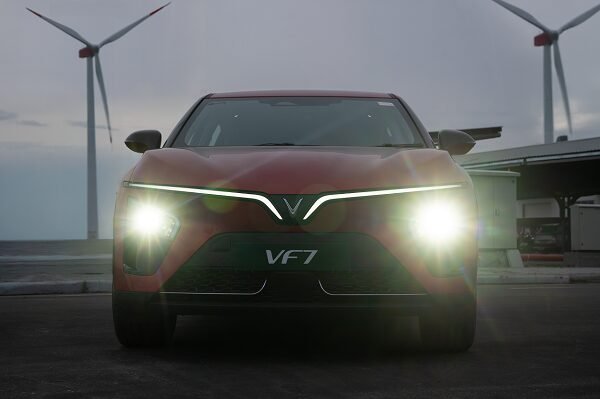Gurugram, Haryana, India | 14th October 2025: It’s 5 a.m. in Bengaluru, and the city’s “silence zones” are anything but quiet. Noise monitors show levels near 57.8 decibels — far above the legal cap. Meanwhile, in Mumbai, petrol pumps reset to over ₹100 per litre. For millions of Indian commuters, every morning begins with two familiar burdens: noise and rising fuel costs.
But September brought a quieter, cleaner choice to India’s roads. From an advanced assembly plant in Thoothukudi, Tamil Nadu, VinFast, a fast-growing global EV manufacturer, rolled out its first models for India — the VF 6 and VF 7 electric crossovers. These cars promise more than reduced emissions; they offer peaceful rides, lower running costs, and minimal maintenance — a combination that could redefine everyday driving in India.
Silence Meets Savings on Every Drive
In cities like Bengaluru or Delhi, traffic noise is a constant companion. Motorcycles, honking cars, and delivery vans merge into an endless roar. Electric vehicles, however, operate differently. With drivetrains producing under 40 decibels at city speeds, EVs like the VinFast VF 7 glide through traffic almost silently — turning heads for what they don’t sound like.
But the real difference shows up at the meter. According to PRS Legislative Research, four-wheeler EVs in India run at about ₹1 per kilometre, or just ₹0.7 under concessional electricity tariffs. In comparison, petrol vehicles cost between ₹4.1 and ₹6.4 per kilometre, depending on taxes and subsidies.
For a commuter driving 40 km a day, that translates to thousands of rupees saved every month. Early adopters across EV forums consistently report steep drops in their fuel expenses — a benefit that’s impossible to ignore.
Affordable Pricing, Everyday Range
VinFast’s entry strategy aims squarely at India’s fast-growing mid-market. The VF 6 starts at an introductory price of ₹16.49 lakh (ex-showroom) for the first 1,500 buyers, while the larger VF 7 begins at ₹20.89 lakh.
Both vehicles boast impressive certified ranges — up to 468 km for the VF 6 and 532 km for the VF 7 — making them ideal for city commutes and weekend road trips alike. Add to that three years of free charging at VinFast’s partner network, V-Green, and the ownership experience becomes even more compelling.
With these models, VinFast isn’t targeting the premium luxury niche. Instead, it’s aiming for the heart of India’s automotive market — where affordability, reliability, and practicality matter most.
Low Maintenance, Long Life
Beyond cost and comfort, EVs deliver another key benefit: simplicity. A petrol engine relies on more than 200 moving parts. An electric motor? Around 20. That difference directly affects maintenance bills and downtime.
According to research by CEEW, maintaining an electric SUV in India costs around ₹0.58 per kilometre, compared to ₹0.77 for diesel vehicles. Over 15,000 km, that’s a saving of nearly ₹2,850, which grows to over ₹14,000 across five years of ownership.
And if anything major does go wrong, VinFast’s warranty coverage offers peace of mind. The VF 7 comes with a 10-year or 200,000-km warranty, while the VF 6 includes 7 years of coverage. Combined with an expanding network of service centres and localized assembly in Tamil Nadu, VinFast’s India ecosystem is designed for long-term reliability.
The New Logic of Electric Mobility in India
India’s EV revolution is often discussed in terms of clean air and reduced emissions. But for everyday buyers, the appeal might be more practical: lower costs, less noise, and fewer hours in the repair shop.
With the VF 6 and VF 7, VinFast brings this practical promise to life. These electric crossovers don’t just offer futuristic technology — they deliver real-world benefits Indian drivers can measure in rupees, minutes, and decibels saved.
As the roads grow quieter and wallets a little heavier, the case for switching to electric — and to VinFast — becomes stronger than ever.






